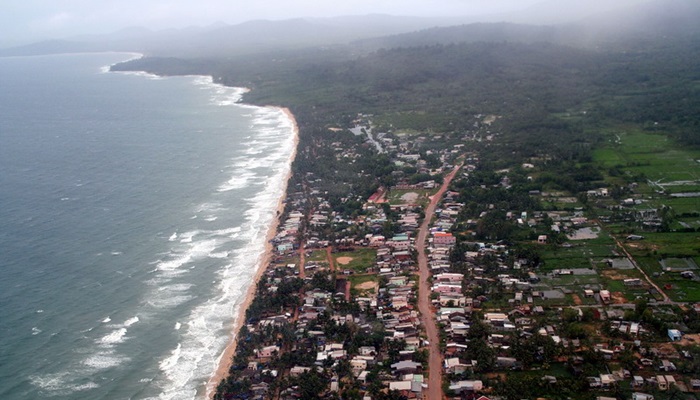During a recent meeting with local authorities in Quang Ninh province, Prime Minister Nguyen Xuan Phuc announced that Vietnamese citizens will be permitted to gamble at two casino resorts on a two-year trial basis, according to local reports.
The two casinos are both currently under development, one is located in Van Don Special Economic Zone at Ha Long Bay North Vietnam and the other will be on Phu Quoc Island in South Vietnam, respectively.
During the meeting, which reportedly took place on December 22 in Quang Ninh province, the Prime Minister also confirmed that the gaming draft decree was still a work in progress. Prime Minister Phuc also reportedly said that the Vietnamese government has been considering amending the law, which did not allow local residents to gamble at any of the casinos in the country, since at least 2012. The Prime Minister went on to say that the new legislation, which would regulate the casino industry in Vietnam, would specify requirements for Vietnamese citizens to gamble at local venues, according to the report.
In November, Professor Augustine Ha Ton Vinh, an expert on country’s gaming industry, told GGRAsia, about the plan by Vietnam’s Politburo to permit locals to gamble “on a trial basis for three years,” at two casinos, according to the news agency. According to a study conducted by Ton Vinh the country loses as much as $800 million in tax revenues every year from Vietnamese gamblers due to the ban cross the border to Cambodia.
While there are several casinos in the country, Vietnamese citizens are prohibited from gambling within its borders unless they possess a foreign passport. And in Phu Quoc, since March 2014, foreigners have been permitted to visit for as many as 30 days without a visa. However, the ban restricting local from gambling limited the prospects of any casino there to a mere 20 percent of the visitors to the Vietnamese island who possess foreign passports, according to VN Express International.
Analysts say that with a population of almost 92 million, lifting the ban could cause investors, who due to the barriers to entry were forced to pull out of casino projects, to reexamine prospects there. Foreign investors looking to operate casinos in Vietnam are required by current laws to build integrated resorts on a large scale, with luxury hotels, malls, entertainment facilities and restaurants. In addition they also require investors have a minimum of 10 years of experience in the casino industry and provide a minimum investment of US$4 billion.
Professor Vinh said, “With the way things stand now in Vietnam it would be very difficult for investors to make investment commitments as there are too many unnecessary barriers in place,” and, “Investors need clarification on the details relating to the issues above from the government and will suggest it follow the common practice of countries with a developed casino industry, according to Vietnamnet.
Vietnam’s Sun Group is developing the Van Don project, which is located in a remote area approximately 160 kilometers (99.4 miles) east of Hanoi. Included in the development plan for Van Don, is an airport to make casino access easy for gamblers. The casino currently under construction in Phu Quoc, is being promoted by VinaCapital Group, a Vietnamese firm. The company recently announced the new casino’s name, Hoiana, as well as the projected opening in the first quarter of 2019.



